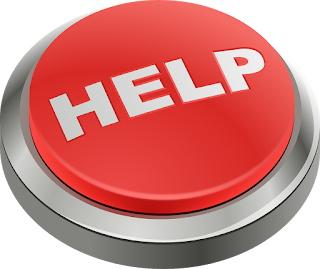Now, I mentioned that G isn't very into playing with toys, but it also extends to writing and anything that really requires fine motor skills. (This has turned into his biggest "Wall of Awful") He just never had the patience to sit down and do... well... anything. He learned to read through my husband and I reading him stories and subtitles on the TV, so the need to sit was at a minimum. Now we're dealing with the consequences of that. They're building the entire system of muscles that are associated with writing from his fingers to his shoulders and core muscles. He's still not a fan of fine motor activities, but we can now hold a pencil and write a sentence without a full on temper tantrum. For G, this was a huge win.
However, it's not just his fine motor skills that are a problem. When he was an infant we immediately noticed that he was more reactive to sound than other babies, and as he got older we found him unable to tolerate crowds or even playdates with more than 2 or 3 kids. It was too much for him and we often had to leave early because of meltdowns. His hypersensitivity to sound made a lot of public events very hard to handle, and for a long time we had to carry earplugs with us. When he started OT, he also started a sound therapy program which has helped him tolerate more and tell us there is a problem BEFORE he melts down. The biggest breakthrough we had this year was going to Bush Gardens and my son telling me through a loud concert that he needed to leave. We had all of my husband's extended family with us and he was able to wait for all of our things to be gathered before moving to a quieter spot further into the park. This was just one way we fond out his body reacts differently to the world around us.
G also has problems feeling where he is in space, which means that he was accidentally hitting kids and the wall corners by accident. We originally attributed this to attention. It's not, and it's one of the reasons he can't sit still. His body needs lots of pressure on his joints to understand where he in space so the jumping and running and pushing were all ways his body was giving itself the pressure it needed. This means that we've had to learn how to help him with that and although he's not perfect, it has reduced SOME of the hyper activity we were seeing. We learned that a lot of his hyperactivity was coming from that need for preoccipital input and have found techniques that can help him feel that pressure and learned how to spot the signs that he is seeking input.
This one was especially surprising, but we learned that focusing was physically tiring for my son. Apparently the muscles in his eyes get sore when he uses them to look at things without turning his head. To cope with this, he's been moving his whole whole head and body. Most people can flick their eyes to the side really quickly if something distracts them during a conversation without moving their head, so the person stays in view, but my son can't (at least not for long). So when he wants to look at something and he has to move his head, taking what he was doing out of his field of vision. Out of sight truly is out of mind with ADHD, so this is likely to be impacting his focus as well.
I'm not sure what the future is going to bring, and every week the changes have been small, but I think a lot of the wins we've seen this year have been due to his OT. If you have a child with ADHD and have the ability to go, it might really be worth considering having them evaluated. The quality of life for both him and our family has increased significantly since he started. He's so much happier and better able to cope with the world.





No comments:
Post a Comment